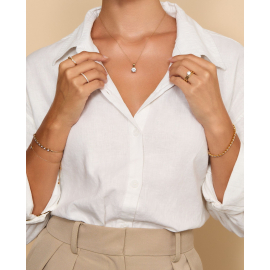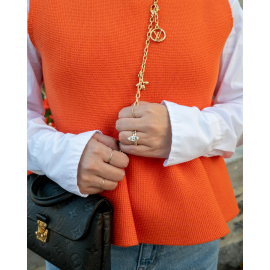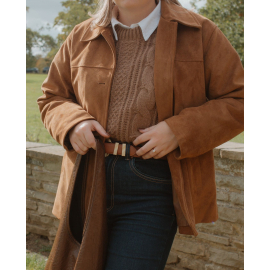Price match guarantee

We’ve teamed up with Klarna to provide flexible payment options, allowing you to shop the way you want. With Klarna, you can split your payment into 3 instalments or choose to pay later, making your shopping experience smoother and more convenient. Your order total must be between £100 and £499 to qualify.

We’ve teamed up with Klarna to provide flexible payment options, allowing you to shop the way you want. With Klarna, you can split your payment into 3 instalments or choose to pay later, making your shopping experience smoother and more convenient. Your order total must be between £100 and £499 to qualify.
.png)
July 20, 2018 | by Admin
It is law within the UK that every item of precious metal sold such as Platinum, Gold, Silver is stamped labelling the item with the type of metal it is. Platinum pieces which weigh less than 0.5 grams, 18ct Gold and Palladium pieces weighing less than 1.0 gram and Silver pieces weighing less than 7.78 grams are except from hallmark.
At Diamonds Factory all our products are hallmarked as per UK hallmarking law from London Assay Office (The GoldSmith Company)
The Goldsmiths' Company Assay Office is the oldest assay office in the United Kingdom. It has provided hallmarking services since The Goldsmiths' Company was founded in the 1300s. The company received its royal charter in 1327 and ranks 5th in order of precedence of the 12 Great Livery Companies of the City of London.
Hallmarking dates back to the 1300s when Edward I of England passed a law requiring any item made of silver, which was offered for sale, to be at least of equal quality as that of the coin of the realm (silver currency). The wardens of The Goldsmiths' Company were tasked with visiting workshops in the City of London to assay (test) silver articles. If these articles were found to be below standard they were originally destroyed and the metal forfeited to the King. If they passed, each article received the King's mark of authentication - the mark of a leopard's head. By 1478, there were several hundred workshops and merchants manufacturing silver articles in the City of London. It was not possible for the wardens to visit them all so the merchants were ordered to bring their items to Goldsmiths' Hall for testing and marking and a permanent Assay Office was established in the building. This is the origin of the term hallmark - struck with the King's mark at Goldsmiths' Hall.
In 1544 the Goldsmith's Company adopted the King's mark as their town mark and the mark of the leopard's head is now internationally recognised as the mark of this assay office.
The Goldsmiths's Company Assay Office is still based at Goldsmiths's Hall and remains the oldest company in Britain to be continually trading from the same site. However, it also has two satellite offices; at Greville Street in Hatton Garden in the heart of the London jewellery quarter and within a high security complex near London's Heathrow airport. It now has a new off-site facility within the Dalston-based jewellery manufacturer, Allied Gold. This is the first time in the Assay Office's 700 year history that it has opened permanent hallmarking services on a customer's premises.
In addition to hallmarking, the office has now expanded its range of services to support the jewellery trade and enforcement authorities. It offers a variety of specialist analytical services including nickel, lead & cadmium testing, antique silver dating, non-destructive compositional analysis, plating thickness measurement and a melt and assay service for scrap precious metal carried out in their fully independent on-site laboratory. Other services offered are a jewellery valuation service, laser marking, trading standards assistance, high quality photography and a comprehensive range of training and educational seminars, lectures and specialist events.






Planning a wedding is both beautiful and stressful but knowing certain things can make the process less tricky and more enjoyable. One of those is how to address your female guests on our wedding invitations. Should you use Miss or Ms? Or should it be Mrs? To make this step easier - and avoid any offences - we wrote this useful guide:
White Gold Round Diamond Engagement Ring
From £324
White Gold Round Diamond Engagement Ring
From £408
Prong Setting Plain Engagement Ring
From £422
Prong Setting Solitaire Diamond Engagement Ring
From £532
What does ‘Miss’ mean?
For example: ‘Excuse me, Miss.’ or ‘Miss Lucy Peters is the new Head of Commerce’
It can also be used as a way to describe something that a woman represents like ‘Miss Universe’.
If you are referring to multiple unmarried or young women, you can use the plural ‘Misses’.
What does ‘Mrs’ mean?
If you were addressing several married women, the plural would be ‘Mmes’ and ‘Mesdames’.
What does ‘Ms’ mean?
So, wondering when to use Miss and when to use Ms? It’s as simple as what the woman prefers. As Miss is usually used for young women, some adult woman would prefer the title Ms instead of Miss. Also, if you don’t know their marital status, always choose Ms since it will save you from experiencing an awkward moment when you meet their partner.
Mss., Mses, and Mmes are the plurals for Ms.
How to pronounce Miss, Mrs and Ms?
Now that you know when to use each of them, it is important that you know how to pronounce them properly:
Mrs: it is pronounced as /ˈmɪsᵻz/)
Ms: it is pronounced as /’miz/, /məz/, or /məs/
Miss: it is pronounced as /’mis
When to use Miss, Mrs and Ms
Miss: You should use ‘Miss’ when addressing girls and young, unmarried women. Ms: You should use ‘Ms’ when unsure of a woman’s marital status or if she is unmarried and prefers to be addressed with a marital-status neutral title. Mrs: You should use Mrs when addressing a married woman.
A prefix cheat sheet:
While it is common to use titles when addressing people it is important to use them correctly to avoid offending someone. Read this guide thoroughly before writing your wedding invitations and be as appropriate and formal as you wish!
Shop our range of wedding rings or check out how to clean your rings safely at home